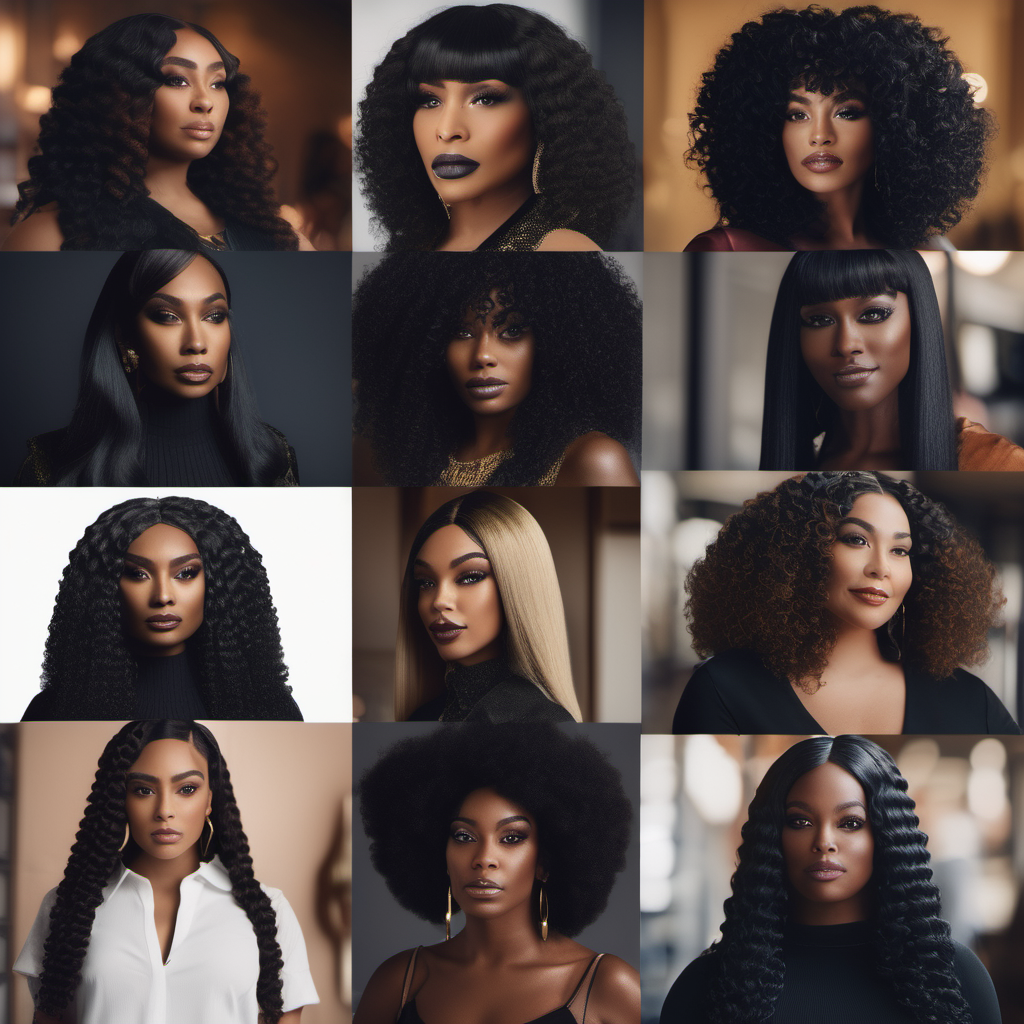Blog Post
Natural Hair or Wigs and Extensions
he choice between wearing natural hair and opting for wigs or extensions is deeply personal for many black women. This decision can be influenced by a range of factors, including cultural pride, convenience, personal expression, and societal pressures. Understanding these factors helps highlight the beauty and significance of black hair in its many forms.
Pros and Cons of Natural Hair
Pros:
1. Cultural and Spiritual Connection: Natural hair often serves as a powerful symbol of cultural pride and connection to African heritage. Embracing one’s natural texture can be an affirmation of identity and an acknowledgment of historical and spiritual ties.
2. Healthier Hair: Natural hair, when cared for properly, can be healthier than chemically treated hair. It avoids the potential damage caused by relaxers and harsh treatments.
3. Authentic Expression: Wearing natural hair allows for authentic self-expression and individuality. It showcases the unique beauty of diverse textures and styles inherent to black hair.
1. Maintenance: Natural hair can require significant time and effort to maintain. Regular moisturizing, detangling, and protective styling are essential to keep natural hair healthy.
2. Societal Perception: Unfortunately, natural hair is sometimes viewed as less professional or acceptable in certain settings, leading to potential discrimination or bias.
3. Learning Curve: For those new to natural hair care, there can be a steep learning curve in understanding how to best care for and style natural hair.
Pros and Cons of Wigs and Extensions
Pros:
1. Versatility: Wigs and extensions offer an array of styles, lengths, and colors, allowing for easy changes without committing to a single look.
2. Protection: They can serve as protective styles, shielding natural hair from environmental damage and daily manipulation, which can reduce breakage.
3. Convenience: Wigs and extensions can save time, especially for those with busy lifestyles, as they can be less demanding to maintain than natural hair.
Cons:
1. Potential Damage: Improper application or use of wigs and extensions can lead to damage of the natural hair and scalp, including traction alopecia.
2. Cost: High-quality wigs and extensions can be expensive, and maintenance costs can add up over time.
3. Disconnection: Some may feel that wearing wigs or extensions creates a disconnection from their natural hair and, by extension, from their cultural identity.
The Impact of Eurocentric Beauty Standards
The debate over natural hair versus wigs and extensions is often rooted in the broader context of beauty standards. Historically, Eurocentric beauty standards have dominated mainstream culture, portraying straight, silky hair as the ideal. This has led to the marginalization of natural black hair textures and styles. Some argue that black men and women have been brainwashed into believing that European hairstyles are more acceptable or beautiful, reflecting a broader issue of internalized racism and societal pressure to conform.
However, it is essential to recognize that not all black individuals subscribe to this mindset. Many choose to wear wigs or extensions simply for convenience, personal preference, or as a form of creative expression. It is vital to respect these choices while encouraging a broader acceptance and celebration of natural hair.
Ultimately, the most important consideration is recognizing our bodies as temples to maintain and adorn, reflecting our spirits and identities. Whether through clothing or hair, it is crucial to understand and express the cultural and spiritual significance of our choices. Embracing natural hair or opting for wigs and extensions should be about personal empowerment and authenticity.
By fostering an environment of acceptance and understanding, we can celebrate the diverse beauty of black hair in all its forms. Whether wearing natural hair or choosing a wig, what matters most is that each individual feels confident and connected to their heritage. This journey of self-expression is a testament to the resilience and beauty of black culture, a celebration of our roots, and a reflection of our spiritual and cultural pride.

